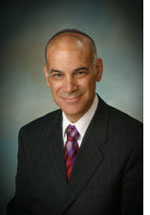By Rabbi Leonard Rosenthal
 SAN DIEGO–Not long after the flood (“Noah, he built him, he built him an ark-ee, ark-ee…”) human beings got into mischief once again. (Humans, it seems, are very slow learners!)
SAN DIEGO–Not long after the flood (“Noah, he built him, he built him an ark-ee, ark-ee…”) human beings got into mischief once again. (Humans, it seems, are very slow learners!)
“Everyone on earth had the same language and the same words. And as they migrated from the east, they came upon a valley in the land of Shinar and settled there. They said to one another, “Come, let us make bricks and burn them hard…Come, let us build us a city, and a tower with its top in the sky, to make a name of ourselves, lest we shall be scattered all over the world.” (Gen. 11:1-4)
The Torah does not tell us exactly what “making a name for themselves” means, but the midrash suggests three possibilities. For a third of them “making a name for themselves” meant overthrowing God. They were building the tower so that they could go to war against God and replace God as divine rulers of creation.
The second third believed in God, but also believed in idols. They were building the tower so that they could place and worship their gods in heaven.
The third group believed in God, but also believed in themselves. They wanted to make themselves famous and renowned by building a monument to their own abilities and for their own glory.
According the commentary Sha’arei Simcha, God set a fire to destroy those who wanted to wage war against God and opened the earth to swallow the idolaters. Only the last third survived, but God diversified their language and scattered them all over the earth. They were allowed to survive because they did not defy God and it is only natural for different nations to take pride in themselves and to make their presence and reputations known.
So says Sha’arei Simcha.
However, we may well ask that if national glorification is natural and permissible, then why did God scatter them and confuse their speech? Why did not God allow them to continue to work together?
A possible solution is supplied by another commentary, the Kli Yekar. The Kli Yekar says that all communities are composed of individuals. Even though these individuals may agree on matters of mutual concern, they often disagree on how to reach their shared goals. God was worried that if all of these egos remained at one geographic point they would begin fighting with each other. It would be better, God decided, for humans to have different languages and live in different places. Perhaps this would reduce the competition.
It is too bad God’s plan did not work! It seems to me that the scattering of peoples and nations across the world has done nothing to abate the jealousies and hostilities that exist between people, and perhaps may have even exacerbated them. In human history there has never been a time when one tribe or nation was not warring against another for either land, power, money, or glory.
Judaism teaches that although competitiveness and jealousy are innate human qualities, we have the ability to control them. We can use our innate competitiveness to do good or do evil. We can build our lives and world as monuments to God’s glory, or as testament to our own egos, selfishness, and desires.
*
Rabbi Rosenthal is spiritual leader of Tifereth Israel Synagogue in San Diego